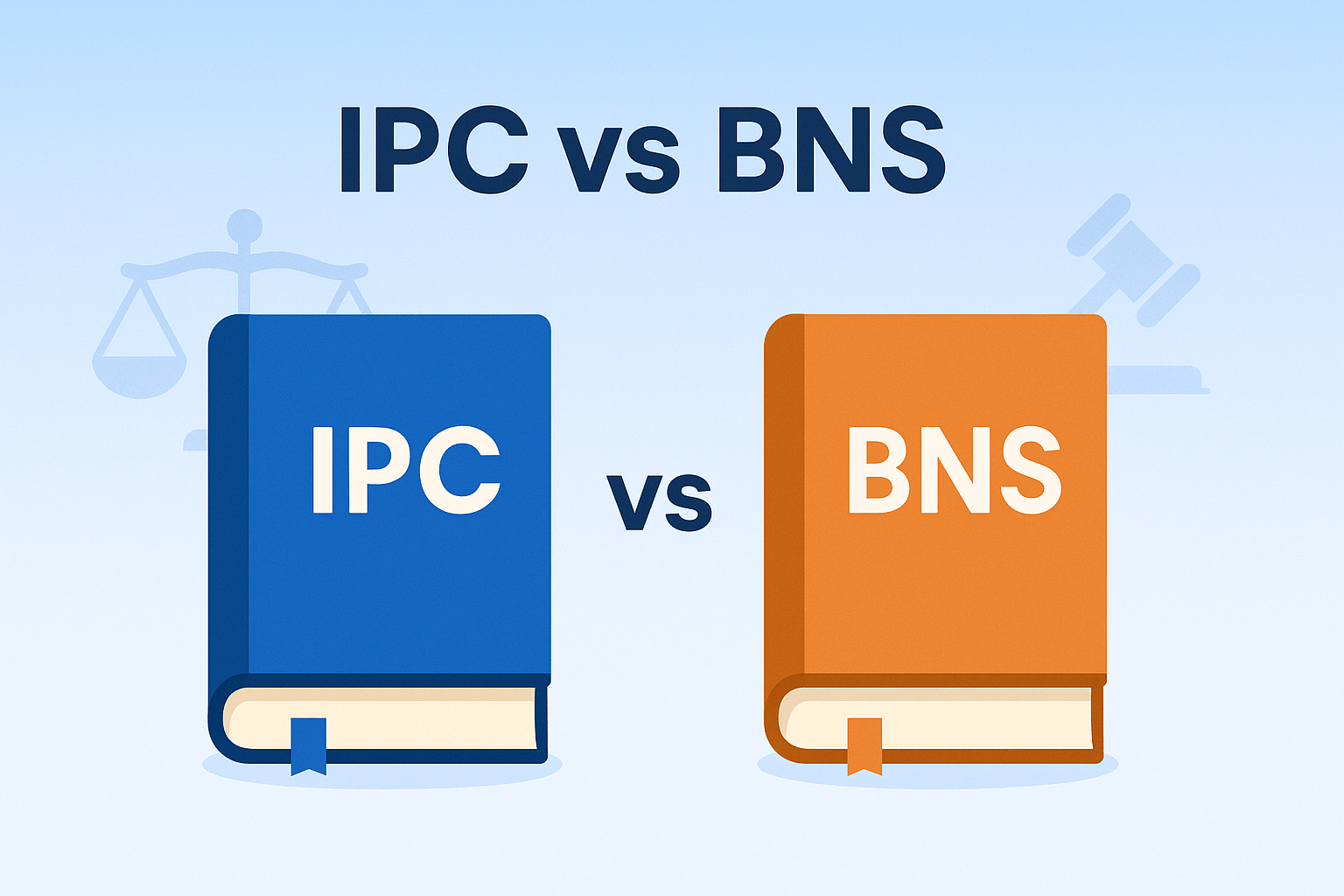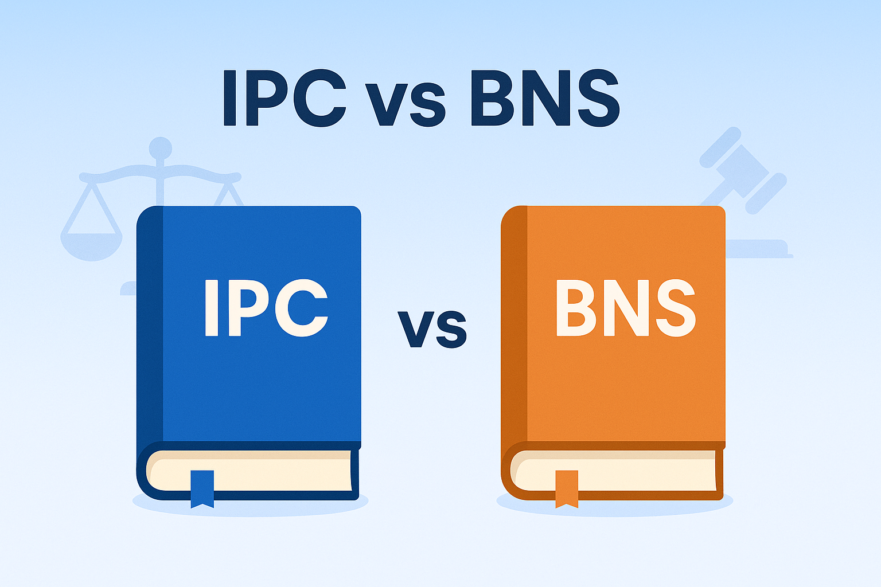
👩⚖️ Rape Laws: IPC vs BNS Explained
📌 Key Topics in this Blog
- ⚖️ IPC Sections 375–376 – Rape
- 📘 BNS Equivalent Sections
- 📊 Comparison Table: IPC vs BNS
- 🏛️ Key Supreme Court Judgments
- 📝 Key Takeaways for Exams
- 🔗 Links to Comprehensive Rape Law Blog
Rape laws are among the most critical sections of criminal law for judicial aspirants. The IPC defined rape under Sections 375 and 376, covering consent, marital rape, and punishment. The BNS retains these provisions with updated language for clarity, age-specific protection, and gender-neutral terminology where appropriate.
📖 IPC Provisions
- Section 375 IPC: Defines rape, lists acts that constitute rape, specifies circumstances under which sexual intercourse is considered non-consensual.
- Section 376 IPC: Specifies punishment for rape, including enhanced punishment for repeat offenders or aggravated circumstances.
📘 BNS Provisions
- BNS Equivalent Sections: Mirrors IPC definitions with minor modifications for clarity and gender-neutral language. Age thresholds and consent conditions are maintained.
- Structural and linguistic simplifications make the law easier to interpret and apply.
📊 Comparison Table: IPC vs BNS
| IPC Section | BNS Section | Key Notes / Changes |
|---|---|---|
| 375 – Rape Definition | BNS Equivalent | Same essence; wording simplified; gender-neutral; consent clarified. |
| 376 – Punishment for Rape | BNS Equivalent | Aggravated punishments retained; structure simplified; language made clear for age-specific crimes. |
🏛️ Key Supreme Court Judgments
- Sakshi v. Union of India (2004) – widened interpretation of consent and protection against sexual assault in custody.
- Independent Thought v. Union of India (2017) – raised age of consent to 18 years.
- State of Rajasthan v. Om Prakash (2013) – clarified aggravating factors and severity of punishment.
📝 Key Takeaways for Judicial Aspirants
- BNS retains the essence of IPC rape provisions but improves clarity and readability.
- Focus on consent definitions, age thresholds, and punishment enhancements.
- Study key Supreme Court judgments, as they remain valid under BNS.
- Internal links for further reading:
IPC vs BNS – Complete Pillar Blog |
Comprehensive Rape Laws Blog |
Dowry Death & Cruelty – IPC vs BNS
📘 Stay Ahead with Delhi Law Academy!
Get access to free monthly current affairs, read our insightful blogs,
and explore free study resources prepared by experts at DLA Jaipur. 🚀
❓ Frequently Asked Questions on Rape Laws
The main sections are 375 IPC (definition of rape) and 376 IPC (punishment for rape). These sections define consent, circumstances constituting rape, and prescribe punishments.
BNS mirrors IPC provisions with minor language modifications, ensuring clarity, gender-neutrality, and easier interpretation. Age thresholds and consent requirements are retained.
BNS simplifies technical language, replaces outdated terms, and clarifies consent and punishment clauses while keeping the legal essence intact.
Important judgments include Sakshi v. Union of India (2004), Independent Thought v. Union of India (2017), and State of Rajasthan v. Om Prakash (2013). These cases clarify consent, age thresholds, and aggravating circumstances.
Focus on BNS sections equivalent to IPC 375–376, understand key definitions of consent, age-related rules, and punishment structures. Supreme Court interpretations are crucial.
For detailed study, check: Comprehensive Rape Law Blog
Contact us
📍 Delhi Law Academy – Jaipur Branch
6C, Tower 2, Coaching Hub, Pratap Nagar, Jaipur – 302033
📞 Phone:
+91 9911916552
+91 8447285606
✉️ Email:
contactus@delhilawacademy.com

